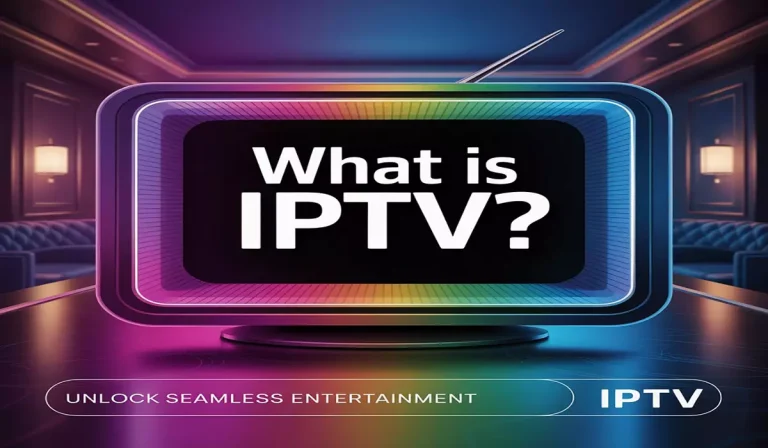
Introduction:
IPTV (Internet Protocol Television) is a modern way to stream television content over the internet instead of traditional satellite or cable services. With IP TV, users receive TV programming through a stable internet connection, offering a more flexible and cost-effective option for accessing television channels and on-demand content.
What is IPTV and How Does It Work
Internet Protocol Television (IPTV) delivers TV programming via the internet using a broadband connection. Unlike traditional TV, which uses satellite or cable signals, IPTV streams content over a private network. This allows users to watch content instantly and on-demand, without the need for physical cables or antennas.
Think of IP TV as ordering a show from a menu – when you select something to watch, the service quickly brings it to your screen over the internet, just like how you’d receive an online order. The process ensures faster delivery, especially with rapid IPTV services, making it different from traditional cable delivery, which can often be delayed or disrupted.
There are three primary types of IPTV services:
One of the main reasons IPTV is gaining popularity is its cost-effectiveness compared to traditional TV services. Users can avoid expensive satellite subscriptions and enjoy a more affordable entertainment option. Additionally, IPTV provides unmatched flexibility and convenience, allowing viewers to watch on multiple devices – from smart TVs to smartphones – and from anywhere with an internet connection. Furthermore, IP TV gives access to global content, including shows and movies from different countries, broadening entertainment options.
In summary, IPTV offers a flexible, cost-efficient, and convenient way to enjoy television content. With various types of services like rapid IPTV for fast streaming, live IP TV, and VOD, it provides something for everyone. If you’re looking to explore the world of IP TV, now’s the perfect time to make the switch and enjoy a modern, seamless viewing experience.